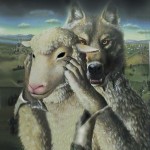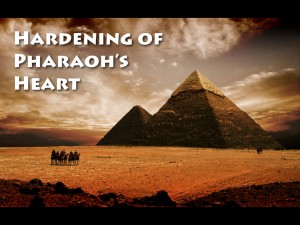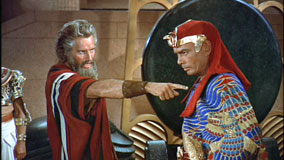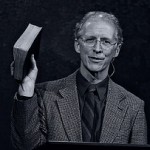 “It is doubtful whether God can bless a man greatly until He has hurt him deeply.” – A.W. Tozer
“It is doubtful whether God can bless a man greatly until He has hurt him deeply.” – A.W. Tozer
“Envy may be defined, or to the happiness of others considered as compared with their own. The thing to which envious persons are opposed is the comparative relation between that state of honor or happiness which others have, or may have, and their own state.” – Jonathan Edwards, sermon 5 in Charity and Its Fruits, in Works, Yale ed., 8:219
“Salvation is not verified by a past act, but by present fruitfulness.” – John MacArthur
“Grace puts its hand on the boasting mouth, and shuts it once for all.” – C.H. Spurgeon
“He who prays as he ought will endeavour to live as he prays.” – John Owen
“Doctrinal preaching certainly bores the hypocrites; but it is only doctrinal preaching that will save Christ’s sheep. The preacher’s job is to proclaim the faith, not to provide entertainment for unbelievers–in other words, to feed the sheep rather than amuse the goats” – J. I. Packer, A Quest For Godliness.
“Christ is the very essence of all delights and pleasures, the very soul and substance of them. As all the rivers are gathered into the ocean, which is the meeting-place of all the waters in the world, so Christ is that ocean in which all true delights and pleasures meet.” – John Flavel
“The issue is not why does God punish sin, but why does He permit the ongoing human rebellion? What prince, what king, what ruler would display so much patience with a continually rebellious populace? …We forget rather quickly that God’s patience is designed to lead us to repentance, to give us time to be redeemed…The supreme folly is that we think we will get away with our revolt.” – R.C. Sproul
“We are all by nature separate and far off from God. Sin, like a great barrier-wall, rises between us and our Maker. The sense of guilt makes us afraid of Him. The sense of His holiness keeps us at a distance from Him. Born with a heart at enmity with God, we become more and more alienated from Him, by practice, the longer we live. The very first questions in religion that must be answered, are these–”How can I draw near to God? How can I be justified? How can a sinner like me be reconciled to my Maker?” The Lord Jesus Christ has provided an answer to these mighty questions. By His sacrifice for us on the cross, He has opened a way through the great barrier, and provided pardon and peace for sinners.” – J.C. Ryle
Continue reading

 One of the many reasons God calls each individual Christian to be part of a local Church is so that they are properly shepherded. God has ordained that each of His sheep is cared for and nourished and although outside ministries can supplement a believer’s spiritual intake, speaking to elders from the city of Ephesus said, “Pay careful attention to yourselves and to all the flock, in which the Holy Spirit has made you overseers, to care for the church of God, which he obtained with his own blood.” (Acts 20:28)
One of the many reasons God calls each individual Christian to be part of a local Church is so that they are properly shepherded. God has ordained that each of His sheep is cared for and nourished and although outside ministries can supplement a believer’s spiritual intake, speaking to elders from the city of Ephesus said, “Pay careful attention to yourselves and to all the flock, in which the Holy Spirit has made you overseers, to care for the church of God, which he obtained with his own blood.” (Acts 20:28) (4) Defending the sheep against attack from wolves
(4) Defending the sheep against attack from wolves
 12 But the LORD hardened the heart of Pharaoh, and he did not listen to them, as the LORD had spoken to Moses. 13 Then the LORD said to Moses, “Rise up early in the morning and present yourself before Pharaoh and say to him, ‘Thus says the LORD, the God of the Hebrews, “Let my people go, that they may serve me. 14 For this time I will send all my plagues on you yourself, and on your servants and your people, so that you may know that there is none like me in all the earth. 15 For by now I could have put out my hand and struck you and your people with pestilence, and you would have been cut off from the earth. 16 But for this purpose I have raised you up, to show you my power, so that my name may be proclaimed in all the earth. 17 You are still exalting yourself against my people and will not let them go.
12 But the LORD hardened the heart of Pharaoh, and he did not listen to them, as the LORD had spoken to Moses. 13 Then the LORD said to Moses, “Rise up early in the morning and present yourself before Pharaoh and say to him, ‘Thus says the LORD, the God of the Hebrews, “Let my people go, that they may serve me. 14 For this time I will send all my plagues on you yourself, and on your servants and your people, so that you may know that there is none like me in all the earth. 15 For by now I could have put out my hand and struck you and your people with pestilence, and you would have been cut off from the earth. 16 But for this purpose I have raised you up, to show you my power, so that my name may be proclaimed in all the earth. 17 You are still exalting yourself against my people and will not let them go. How shall we know God? How shall we know what God is like and how we are to think about him? When I ask myself this question, one response comes crashing into my mind with overwhelming certitude: human opinion counts for nothing. What you feel about the way God should be and what I feel about the way God should be counts for nothing. If someone rises up and makes a pronouncement about what they can believe and can’t believe about God, that is as significant in determining what is true about God as the creaking of a window in the wind. Human opinion counts for nothing in defining God.
How shall we know God? How shall we know what God is like and how we are to think about him? When I ask myself this question, one response comes crashing into my mind with overwhelming certitude: human opinion counts for nothing. What you feel about the way God should be and what I feel about the way God should be counts for nothing. If someone rises up and makes a pronouncement about what they can believe and can’t believe about God, that is as significant in determining what is true about God as the creaking of a window in the wind. Human opinion counts for nothing in defining God.